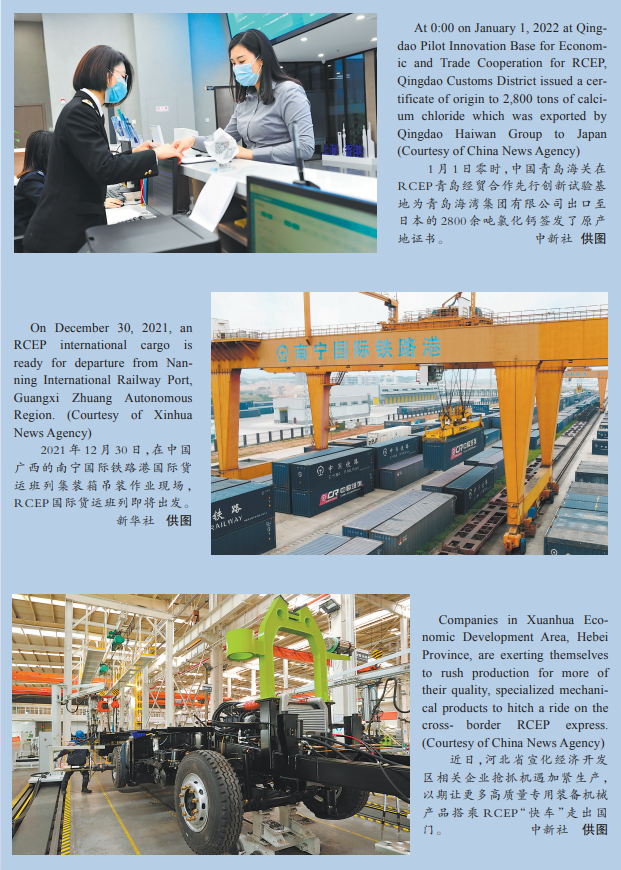RCEP Takes Effect, IP Claims the Biggest Coverage

The Regional Comprehensive Economic Partnership (RCEP) took effect on January 1, 2022, marking the RCEP the largest free trade area in the world. "The coming-into-effect and implementation of the RCEP is a major victory for multilateralism and free trade. As one of the first members to formally complete the RCEP ratification process, China is committed to open regionalism. We uphold the multilateral trading system, promote regional economic integration with firm determination and concrete actions and boost regional trade and investment," said Foreign Ministry Spokesperson Wang Wenbin at a regular press conference on January 4.
As the chapter with the most contents and biggest coverage in the RCEP, the chapter on intellectual property reflects not only China's efforts in global IP governance, but constantly improvement of regional IP protection.
IP claims the biggest coverage. RCEP consists of a preamble, 20 chapters, and 4 annexes to the market access commitment table. Among them, the chapter on IP includes 83 clauses, transitional arrangements, and two annexes for technical assistance. Such chapter incorporates most contents of IP in the free trade agreements that China has signed so far. The chapter covers copyright, trademarks, geographical indications, patents, designs, genetic resources, traditional knowledge and folklore, anti-unfair competition, IP enforcement, cooperation, transparency, technical assistance, so as to reduce impediments to trade and investment by promoting deeper economic integration and cooperation through effective and adequate creation, utilization, protection and enforcement of IP.
The Central Committee of the Communist Party of China and the State Council has made grand schemes to ensure the implementation of the RCEP and confirmed the duty lists. The China National Intellectual Property Administration (CNIPA) is responsible for 60 binding obligations and 25 encourage duties, including patents, designs, trademarks, geographical indications, genetic resources, traditional knowledge and folklore.
Improving regional IP protection. The IP chapter not only includes the major issues of traditional IP, but also embodies the new trend of IP protection and development. The relevant provisions on transitional period and technical assistance are set to meet the different levels of economic development and capacity in different countries, and help them to better exact their responsibilities. In general, the RCEP enhance the overall regional IP protection on the basis of Agreement on Trade-Related Aspects of Intellectual Property Rights (TRIPs) of the World Trade Organization(WTO). It takes the different development levels of member states into consideration, and provides a balance and inclusive solutions to IP protection and promotion in the region, which is conducive to innovative cooperation and sustainable development.
China actively participates in regional IP governance. "Apart from wide coverage, fairness consideration and improvement of regional IP protection, RCEP also highlights Chinese experience. The malicious trademark and electronic registration term in the IP chapter reflects that what China has done in this field is becoming international IP rule and continuous development of China's efforts in regional IP governance," said Zhang Huaiyin, associate professor and doctoral supervisor of Shanghai International College of IP, Tongji University.
At present, CNIPA has made systematic research on relevant obligations on the RCEP list, created a clear job specifications according to the duties, allocated them to its departments, and identified the implementation measures, result-based assessment standard and time lines. Next, CNIPA will spare no efforts to materialize the RCEP.
Source:China IP News
 商专知识产权
商专知识产权